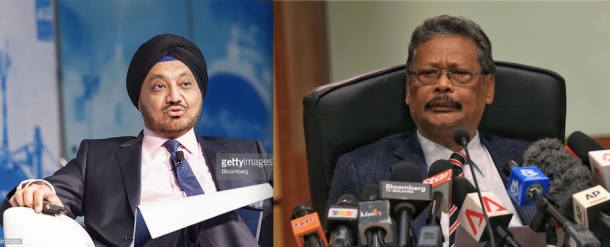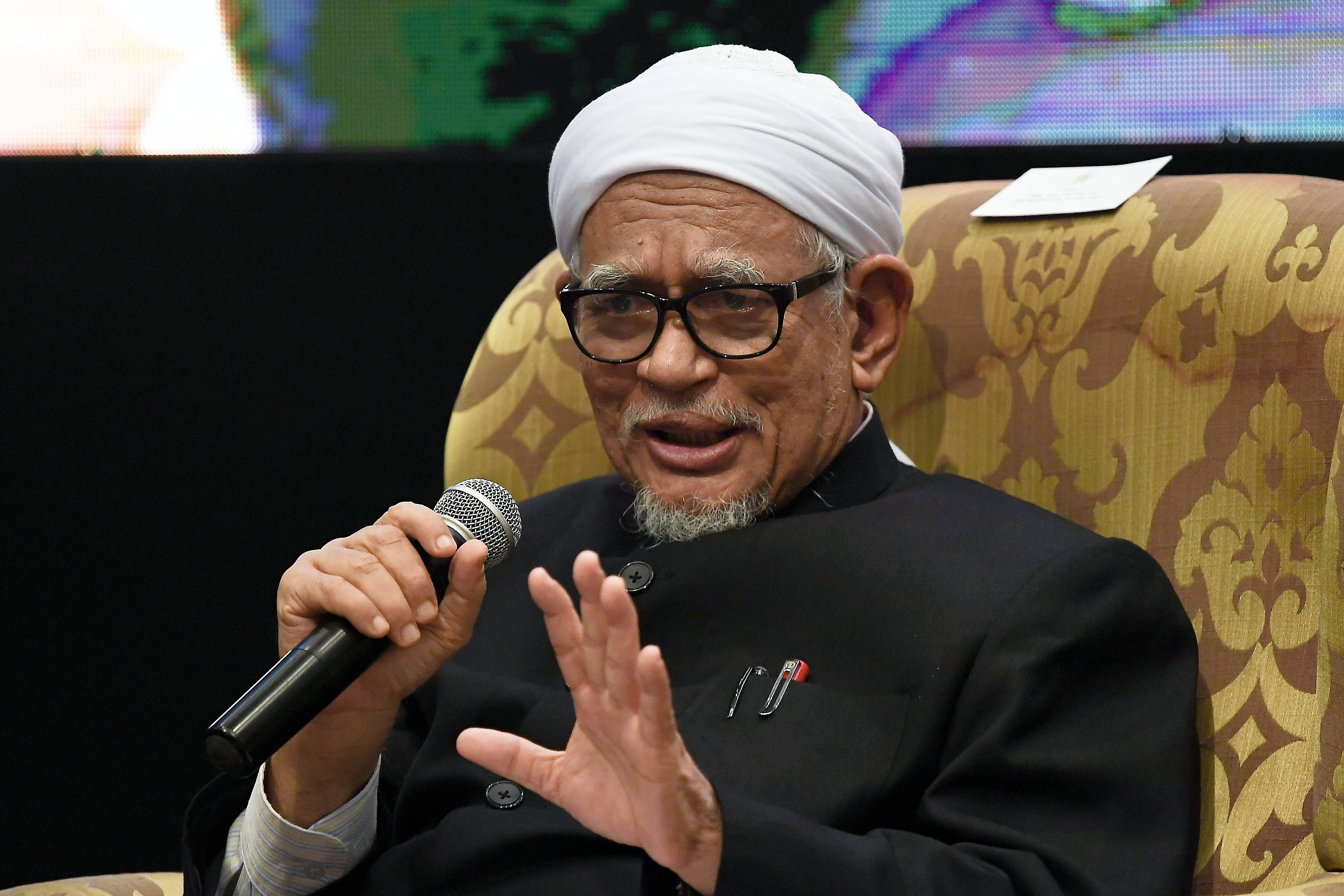In June 2018 this writer noted that Malaysia's SC had a 20 year old mutual cooperation agreement with Australia's ASIC that the SC refused to activate with regards the 1MDB investigation (see story below).
Since then it has also been discovered that Tabung Haji's business dealings in Australia require investigation:
Tabung Haji Australian investments still with Tabung Haji, not transferred to Urusharta Jamaah SB ? :Malaysia's Tabung Haji scandal an Australian problem for ASIC and the AFP, and may be linked to 1MDB (which Australia continues to ignore)
Now that Malaysia has a new AG in Idris Harun, would he pursue these matters and request the SC to activate its mutual assistance agreement with Australia's AISC?
Now that Malaysia has a new AG in Idris Harun, would he pursue these matters and request the SC to activate its mutual assistance agreement with Australia's AISC?
At stake are billions of dollars, and the money of Tabung Haji depositors.
END
Friday, June 29, 2018
RE 1 MDB: Malaysia's SC has a 20 year old mutual cooperation agreement with Australia's ASIC that SC refuses to activate (and keeps hidden from 1MDB taskforce,MACC)
by Ganesh Sahathevan

Posted on June 4, 2016 by JEBATMUSTDIE
No less a person than the former Attorney General of Malaysia, Tan Sri Abu Talib Othman , who now oversees the 1MDB investigation has declared:


Don’t ever trust incompetent and shifty looking people
Apandi Ali and Ranjit Singh received awards for not doing their proper jobsPosted on June 4, 2016 by JEBATMUSTDIE
No less a person than the former Attorney General of Malaysia, Tan Sri Abu Talib Othman , who now oversees the 1MDB investigation has declared:
"They (investigators) are facing a lot of challenges as these are cross-border transactions (and) have to comply with proper protocol and laws applicable as requested by the Prime Minister.
"(He) said you have to comply with due process and rule of law, so they are complying with that as said so (by the PM Tun Dr Mahathir Mohamad)," 1MDB investigation committee head Tan Sri Abu Talib Othman told reporters today after being briefed by the investigators.
"It may look simple but it can be complicated as it involves so many parties. Our jurisdiction ensures that there are no overlaps in the investigation. We (have) identified the overlaps but we clarify it. The overlap is with the SC and police. However, we are getting clearer on the investigation," he added.
The 1Malaysia Development Bhd (1MDB) inquiry is led by the Securities Commission Malaysia (SC), the Malaysia Anti-Corruption Commission (MACC) and the police.
It's provisions can easily be activated to obtain information from various Australian sources, which the MACC seems to be unaware.
The SC is clearly compromised, if not compromised and incompetent. Like the MACC ,it needs to be flushed before it is allowed anywhere near the 1MDB investigation.
END
See also
Australian High Commissioner visits MACC,assured despite the evidence & PM Mahathir's complaint that 1MDB investigation will not involve Australia
Australia And New Zealand Slide From Their Responsibilities Over Mass Corruption In Malaysia
What has turned the sleazy 1MDB corruption scandal, involving a wide-boy from Penang and a dirty Malaysian politician, into a global issue, has been the light it has thrown on the willingness of major financial instutions to turn a blind eye to massive money laundering.
This has in turn been permitted by deliberately under-staffed regulators, controlled by ‘First World’ politicians, who see no benefit in dealing with corruption in places like Malaysia. They have been willing instead to see their own institutions make money out of the proceeds and to hell with the human misery caused back where the thieves are thieving.
Confronted with the blatant nature of the grubby pillaging of 1MDB, however, and the huge sums flushed through property, businesses and the art market, countries like the United States, Switzerland and Singapore have taken action and are punishing financial facilitators in their regions.
Yet, down south, Australia and New Zealand are still doing their best to pretend none of this was to do with them.
ANZ Bank is the most atrocious example of this failure, since the Australian regulators have done absolutely nothing to investigate, let alone chastise or punish blatant failures by this bank to control vast money laundering activity in a subsidiary where it was the dominant shareholder, namely AmBank.
All the top responsible personnel in charge of compliance, executive decisions and customer care at AmBank were on secondment from ANZ and remained primarily employed by ANZ during their periods of deployment at the KL subsidiary.
Yet, when questioned about the failure of this substantial body of Australian staff members to honestly do their jobs, the response of the bank has been that they had no control over their seconded employees, who in turn were apparently not responsible for their own failures to carry out their legal obligations and report money laundering.
ANZ want to have their cake and eat it. They wanted to be able to brag that AmBank was, thanks to their own investment and major shareholding, a top class bank, run according to the highest global benchmark standards. Yet, when it turned out to be a corrupted can of worms, ANZ have turned round and said they cannot be held responsible. No one in Australia’s regulatory establishment is holding them to account.
The cover-up is now well underway. Lowly staff have been sacked, those more senior have quietly retired and ANZ is eagerly preparing to sell off its stake in AmBank, so it can slide away unscathed.
Stunningly, the proposed purchaser of that stake is none other than the Malaysian Government/Najib controlled public pension fund KWAP, which was itself already a victim of 1MDB, having lent some RM4billion to the fund, which Najib then proceeded to notoriously help himself to. No accounts have been filed for KWAP since December 2015.
Yet now, once again, this public pension money is being funnelled in to get a 1MDB player off the hook and the Australian bankers responsible are showing not the slightest degree of contrition over their responsibility for the this disgraceful outcome.
It is shameful behaviour that will come back to haunt those who have failed their duties.
Trust Us No More! New Zealand’s Reforms Expose Past Lies
In New Zealand, meanwhile, 1MDB has had a different impact, which the authorities are equally attempting to ignore, according to financial commentators who have passed on their observations to SR.
A headline catching court case at the start of the year in Aukland, saw Jho Low win an important battle in his fight to hang on to a previously secret trust he and his family had used to park ownership of hundreds of millions of dollars worth of assets around the world (including in London, Singapore, Paris and the United States) all of which had been purchased with money stolen from 1MDB.
Justice TooGood agreed that in order to contest the asset seizures the Lows could regain control of the New Zealand trust, which they had pretended Rothschild bank had been managing on their behalf – thereby proving that such trusts (which then existed by the thousand in New Zealand) are effectively bogus fronts.
But, if Jho Low won that battle, the exposure of this rotten system seems to have lost the war for the New Zealand bogus trust industry. Following the Panama Papers outcry and cases such as this one the government was forced to officially investigate the scandal and then implement reforms, which included new regulations requiring that the beneficiaries of the thousands of rich man trusts set up in New Zealand now need to be declared.
No longer could such billionaires hide behind companies registered in the Caymans, Bahamas or Mauritius.
No problem, if such individuals are indeed the genuine article. A review of the country’s trusts by one of its top financial big-wigs, John Shewin had concluded it could find absolutely no instances where the lax system in New Zealand had been abused. Although, Mr Shewin conceeded that it would plainly be possible to do so, hence these telling reforms.
Shine A Light And The Roaches Run
Now the reform has been implemented as of June 30th of this year, it has predictably resulted in some devastating figures. This from the country’s own Business News:
“.. new foreign trust disclosure rules came into effect in New Zealand on June 30, which meant foreign trusts have to register with Inland Revenue and provide particulars of all parties, including the settlor and beneficiaries, and assets. They will also have to file annual returns and pay registration and filing fees.
New Zealand had 11,645 trusts in April last year but fewer than 3000 have registered with Inland Revenue under the law changes. Some 3000 said they didn’t want to operate under the new rules while another 5000 didn’t respond, meaning they will be struck off.
However, as financial writer Graham Adams has told Sarawak Report “Extraordinarily, the government is spinning this as trusts finding the new conditions to be onerous rather than evidence of the trusts formerly being used to hide illicit money and packing up shop because their cover has been blown”.
And, so it seems. The government minister responsible appears to believe the whole episode provides a grand excuse for New Zealand’s regulators to pat themselves on the back rather than hang their heads in shame over years of harbouring thousands of crooked accounts:
“Revenue Minister Judith Collins said the drop in trust numbers was not surprising and it shouldn’t be assumed that was because many had been handling the proceeds of illegitimate activities. “There is a much heavier compliance burden under the new regime with more disclosure required than ever before.”.. she said, adding New Zealand now had a “world class regime”.[Stuff NZ]
Who believes that – after all, how burndensome is it to write down your own name?
Nor is this system yet ‘world class’. The New Zealand Government have notably refused to extend to the full transparency that would actually be expected of a benchmark regime i.e. an open register where journalists and others could cross reference potentially illegal activity.
This means that, for example, Sarawak Report is unable to inform Malaysians whether Jho Low and his family are one of the few to have re-registered their trust in New Zealand. They may have done so. After all, in the end they got what they wanted from the courts despite being fully exposed in the process.
Like Australia with its banks, New Zealand should be ashamed of the comparatively paltry $40 million a year that certain financial folk were making out of facilitating grand theft through such trusts from countries around the world, including the largest kleptocracy case ever from Malaysia.
We give the last word to their Labour Revenue Spokesman, Michael Wood, quoted as saying “Our view is the most likely reason [so many trusts have quit New Zealand] is because the people engaged in setting up foreign trusts are by definition wanting to hide their assets from their own jurisdictions and don’t want there to be any sunlight on their activities,”
That conclusion is inescapable and Australian and New Zealand spokesmen have fooled nobody by denying the obvious.



